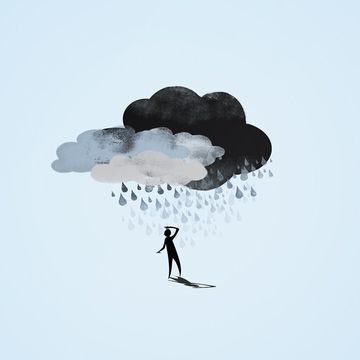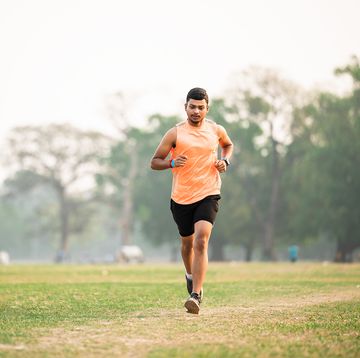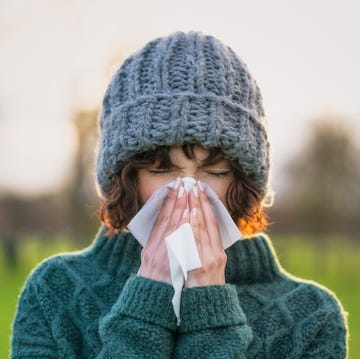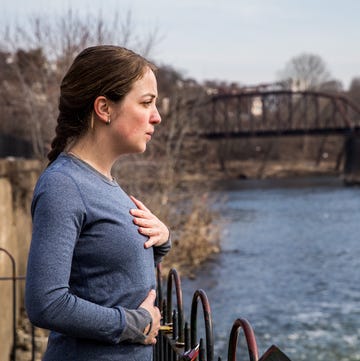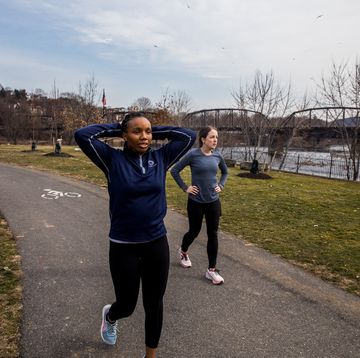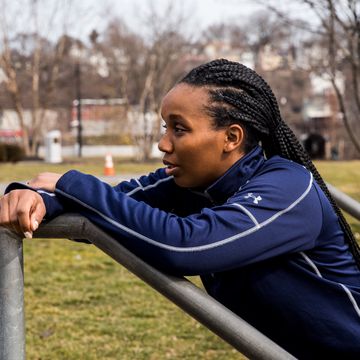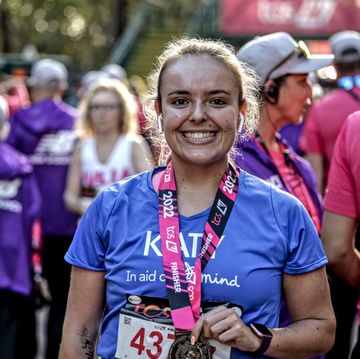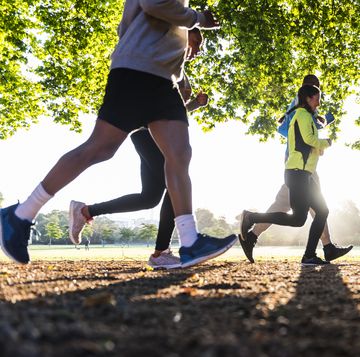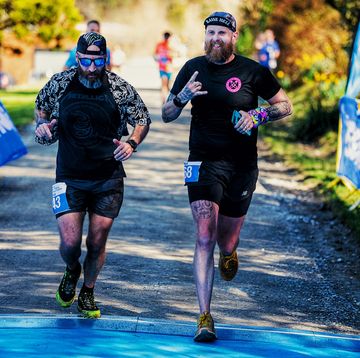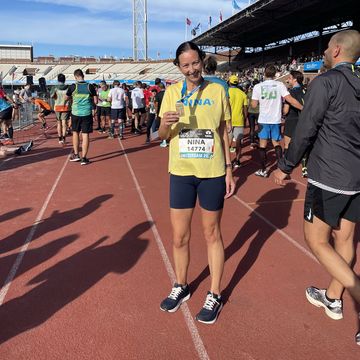We've come a long way; mental health is discussed more openly now than ever. It’s a sign of how much has changed for the better that everyone from the royal family to pop stars, actors, sports figures and celebrities have been willing to talk about their demons.
But while such openness is breaking down the stigma surrounding mental illness, the statistics show that more people are suffering than ever. The charity Mind says one in six adults in the UK experiences mental health issues each week, so it’s likely someone in your circle of family and friends is struggling right now. Perhaps you are.
Piecing together snapshots from various findings paints a bleak picture of the state of our mental health. Stats from the Mental Health Foundation reveal that 7.8% of the British population suffer from mixed anxiety and depression – Britain's most common mental disorder – while phobias, addictions and post-traumatic stress disorder are also among the issues mental health professionals encounter every day. And according to NHS data, one in every 100 people in the UK lives with a severe mental health condition, such as bipolar disorder.
These common problems often surface early in life; roughly three children in every school classroom have a diagnosable mental health issue, according to CAMHS, the NHS’s child and adolescent mental health service. In fact, three quarters of all mental health issues are established before someone reaches 24.
Demands on NHS mental health services continue to mount – and there is still a long wait for help for many. Tragically, some can see no hope: the most recent suicide statistics from the Samaritans charity show that more than 5,219 people took their own lives in 2021 – the majority of whom were men. And suicide is the biggest killer of men aged under 50 in the UK.
Medication and talking therapies remain the default treatments for mental health issues. According to data from NHS Digital, there were 70 million antidepressant prescriptions issued in 2018, almost double the 2008 figure. Meanwhile, well over one million people are referred to NHS talking-therapy sessions a year. But running could be another way to help combat these issues.
Numerous studies have shown how exercise – and running, in particular – can be beneficial to mental health. A link between physical activity and mental wellbeing has not been irrefutably proven, but there is growing evidence from around the world of its benefits. For example, a review re-evaluating earlier studies, which was published in Australia’s Journal of Science and Medicine in Sport, concluded that aerobic exercise three times a week at a moderate intensity over nine weeks can help to treat depression.
A US study of 1.2 million people published in The Lancetin in 2018 found those who exercised reported better mental health. And, closer to home, in a study conducted by Elizabeth Goyder, professor of public health at the University of Sheffield, 69% of 60,000 UK parkrunners surveyed said their mental health had been improved by their regular Saturday morning 5K.
Behind all this data are stories of people who found running has had a life-changing effect on their mental health.
Three of those people have been generous enough to share those stories here. Their testimonies offer inspiration and hope for anyone going through dark times.
Lewis Fieldhouse, 31, Harrogate, North Yorkshire
‘I have run on and off throughout my life, though, if I'm honest, I’d never really enjoyed it. But my relationship with running has fundamentally changed over the last year.
I’m a full-time musician and was living in London for six years, having grown up in Harrogate. But when my mum became very ill with cancer, I decided I needed to move back home to care for her. I’d reached the point where my work didn’t matter and I just wanted to be there for Mum. I moved up in August last year.
I have been having counselling therapy for more than three years; I started when my mum became ill. It has helped with my anxiety, but once back in Harrogate, I decided I needed to do something else positive for myself, as looking after Mum took a toll on my emotions. I wanted to do something physical, and running filled that need. I had seen on social media a group called Early Bird Run Crew that was social, not competitive. That appealed to me. They met every weekday morning for a 6am and 6:30am 5km run around The Stray, a large open space in the town.
Getting up before six was unusual for a musician like me – I was usually coming in not long before then, after returning from a gig. But I made myself go running three times a week. I liked that it came with no expectations. If you wanted to jog slowly and chat, that was fine, or you could steam around the route and that was cool, too.
After starting last summer, I would run with regular members and talk about my mum with those I’d come to know better. It helped me put my mind in the right place to face another day of caring for Mum before she passed away in October. A few days afterwards, I was running.
I realised getting up to run was a habit that gave my days a structure. Although my counselling has been the foundation for all the positive things in my life in the past three years, the running has added to that. Together, they have changed my outlook and I’m now less anxious than I was. Even though it’s still soon after Mum’s death, running has helped me feel I’m in a better place.
While running outside in the country, I feel grounded and very much in the present; I focus solely on running. I like to concentrate on my breathing and fall into a rhythm as I move forward; that’s very relaxing. I’m sure running has helped me process my feelings after Mum’s passing.
I realised just how important running is to me when I suffered a knee injury recently. I was desperate to get out and run. It’s now part of what I do. In the future, I would like to do something like a coast-to-coast run or an epic sort of run like that. I now love that sense of simply travelling across the earth’s surface as you run along and what that does for your mind.’
Jessica Morgan, 26, Southend-On-Sea, Essex
‘I was sexually assaulted when I was 19, which caused my world to crumble around me. I gave up my college course and my social life. Instead, I would sit in my parents’ house, rarely venturing out. Before that incident, I was a sociable, confident person. But it triggered depression and anxiety, which I’ve tried to manage ever since.
I was prescribed medication and had counselling, but neither really worked. I even attempted suicide a few times, once when I was at a railway station. Luckily, people there helped to save me, but it was probably the worst day of my life during a very dark period.
Then, in 2015, I started running, something I hadn’t done since I was at school. On Instagram, I’d seen images of people running and hanging out with a running club called the LDN Brunch Club. I wanted to fix myself and be social again, so one Sunday morning I plucked up the courage to go for a run with them. However low my mood was during the week, simply looking forward to a Sunday run with my new friends was my focus.
When I did my first marathon with some of them, in Berlin, it felt amazing. I crossed the finish line in tears. Nothing in my life up until then compared to those emotions of setting out with an aim and then achieving it.
When I felt I was not good enough and was doubting myself, completing a race with my friends alongside me, with crowds cheering me on, was incredible. I was keen to challenge myself more and test myself further.
I realised that having goals really focused my mind and gave me a huge sense of purpose. So I entered China’s Great Wall Marathon in 2016. I knew it would be really tough, both physically and mentally. The experience of training for it and running it really changed my life. I felt I was proving to myself that I could defy my depression and anxiety; on so many occasions in the past, these feelings had tried to kill me. But this race gave me a powerful perspective on every aspect of my life. I felt if I could run 26.2 miles, I could do anything – I felt so alive.
I’ve completed two more marathons and many other races. Each time, I’ve felt a great sense of satisfaction when I’ve crossed the finish line. I’m keen to do another – having a challenge on the horizon keeps me mentally fit. I run whenever I can, often along the seafront in Southend on my own or with other groups, or even in the gym. Running made me feel mentally well again, so it’s now something I believe I will always do.
I still take medication for my issues, but I feel running on top of that makes the difference. It works for me because it allows me to escape my mind. I would even say running has saved my life. Some people might say going for a run is running away from your problems, but I feel it’s very positive: it’s going towards them to address them head on. Running has made me who I am today.’
Steve Leabon, 58, Bexhill-On-Sea, East Sussex
‘I received a massive curveball two years ago after I noticed a lump on my neck. I was referred to hospital, where I was told I had throat cancer. The diagnosis and prognosis were terrible. I’m normally upbeat, but this hit me hard.
In May 2018, I underwent treatment, which destroyed the lump, followed by six weeks of radiotherapy and chemotherapy. This took a huge physical toll – I dropped two-and-a half stone in six weeks and lost all my muscle tone. But mentally, I also was at a very low ebb. I had to stay inside during my treatment, as my immune system was wiped out. I became a recluse. I was depressed and hit rock bottom – at times, I did feel what was the point in carrying on. I remember my daughter Jessica saying to me one day, “Dad, you are not you.” It was true. It was a very hard time for me, my wife, Gina, and our family.
At the start of 2019, I decided I had to pull myself out of this depression. I’d been offered counselling but didn’t want to go down that route, as I had my own religious faith. I knew Jacky Youldon, a runner in Bexhill who had started a local running group called Running Space. I’d never been a runner, but thought starting exercise might help me.
I was nervous about joining. But I went along to the cafe hub where the group meet. I heard the laughter coming from them after their run. The support was almost tangible, and I realised I wanted to be part of it. I joined one of their Walk2Run sessions. From walking slowly, I began to run. I was soon going three times a week, along with runs on my own. Last spring, I ran the Hastings Half Marathon.
Many Running Space members live with mental health issues. Some have attempted suicide or been affected by those who have. I listened to other people’s stories and they listened to me. We gave each other a lot of mutual support. At first, the running was secondary to the talking side, which was easing me into being more social again. But the more I ran, the more I could feel my mental health improve. Running gave me the keys to help make me better.
We all start together and we all finish together. It means those at the front loop back to run with those at the back. But it also has a deeper meaning: we’re there for each other.
The doctors I see to check the cancer is gone can’t believe how well I’ve bounced back. They ask what’s the reason and I tell them about Running Space, and they’re amazed. I’m sure I wouldn’t be so well mentally today even if I’d taken all the counselling and drugs I was offered. I think running with the group has made the difference.’
Like this article? Sign up to our newsletter to get more articles like this delivered straight to your inbox.








